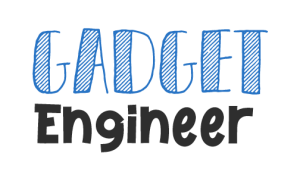
In today’s rapidly evolving world, it is crucial for teenagers to equip themselves with the right skills and knowledge to thrive in the future. The field of Science, Technology, Engineering, and Mathematics (STEM) has emerged as a cornerstone of modern education, offering boundless opportunities and opening doors to exciting careers. In this article, we will explore why STEM is the key to a promising future for teenagers aged 16 to 18. Additionally, we will delve into the advantages of a unique course called Junior Engineering offered by 360 Labs, designed specifically to nurture aspiring young engineers.

- Building Essential Skills
By engaging in STEM education, teenagers acquire a wide range of skills that are highly sought after in the professional world. Science and mathematics foster critical thinking, logical reasoning, and problem-solving abilities. Technological literacy enables teenagers to adapt to new technologies and navigate the digital landscape effortlessly. Engineering instills creativity, innovation, and project management skills. These essential skills provide a solid foundation for personal and professional growth, enabling teenagers to tackle complex challenges with confidence.
- Preparing for the Jobs of the Future
The future job market is expected to be heavily reliant on STEM disciplines. A report by the World Economic Forum predicts that 85 million jobs may be displaced by automation and artificial intelligence by 2025. However, it also projects the creation of 97 million new jobs in emerging fields, many of which will require a strong foundation in STEM. By immersing themselves in STEM education, teenagers position themselves favorably for the in-demand careers of tomorrow, such as robotics, artificial intelligence, data science, and renewable energy.
- Encouraging Innovation and Entrepreneurship
STEM education encourages teenagers to think creatively and come up with innovative solutions to real-world problems. By exploring the principles of engineering and design thinking, students are empowered to become problem solvers and inventors. This mindset fosters an entrepreneurial spirit, inspiring teenagers to develop their ideas and pursue their own ventures. STEM education equips them with the skills and knowledge needed to turn their innovative concepts into tangible products and services, driving economic growth and societal progress.


- Junior Engineering at 360 Labs: Paving the Way to Kid Engineering
The Junior Engineering course offered by 360 Labs is a game-changer for teenagers interested in engineering. This comprehensive program provides hands-on learning experiences, interactive workshops, and exposure to cutting-edge technologies. By joining this course, teenagers gain practical insights into the world of engineering and receive guidance from industry experts. Through project-based learning, they apply theoretical concepts to real-world scenarios, honing their problem-solving skills and fostering their passion for engineering.





- The Benefits of Junior Engineering at 360 Labs
Junior Engineering at 360 Labs offers a myriad of benefits for teenagers:
a) Early Exposure: The course allows teenagers to explore engineering at an early age, helping them make informed decisions about their future educational and career paths.
b) Practical Experience: Through engaging activities and projects, students gain hands-on experience, fostering a deep understanding of engineering principles and methodologies.
c) Mentoring and Guidance: The guidance provided by experienced instructors and industry professionals at 360 Labs ensures that teenagers receive personalized support, enabling them to excel in their engineering endeavors.
d) Teamwork and Collaboration: The course encourages collaboration among participants, fostering teamwork and communication skills essential for success in engineering and beyond.
e) Pathway to Further Education: Junior Engineering acts as a stepping stone to higher education in engineering disciplines, providing a solid foundation for future academic pursuits.
Conclusion
STEM education is undeniably the pathway to a bright future for teenagers aged 16 to 18. By embracing STEM disciplines, students develop crucial skills, prepare themselves for future job opportunities, and cultivate an
